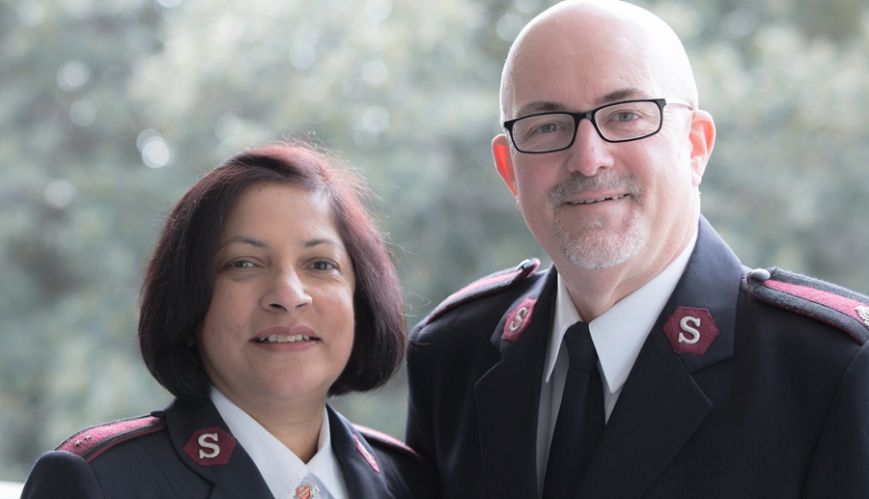Writing that reflects who we are

Writing that reflects who we are
5 October 2016
Captain Tara, and Major Peter McGuigan.
When I was 32, out of the blue I received a letter from The Salvation Army headquarters appointing me to assist in the production of Salvation Army publications in Melbourne. I was absolutely flying in my second appointment as a Salvation Army officer, serving as corps officer at Centenary Corps in Brisbane’s western suburbs.
I actually liked the idea, mostly because I enjoyed writing and saw it as an opportunity to write more. I saw writing as important to God. It was the Holy Spirit who told the author of Revelation: "Write, therefore, what you have seen, what is now, and what will take place later" (Revelation 1:19). Perhaps even more profound was the instruction to Habakkuk: "Write down the revelation and make it plain" (Habakkuk 2:2). Nevertheless, there were mixed feelings about going to Melbourne.
Upon arrival, I realised there was a lot to learn and knuckled down to mastering the art of journalism, copy editing and proofreading, albeit within this small but very professional Christian publishing house. Those who have worked in newspaper production will agree that editorial work is a world of its own, including its own language. There were ems and ens, fonts and kerning, widows and orphans, paste-up grids, proofreading symbols, and "rules of writing" that I never knew existed.
I was given Strunk and White’s The Elements of Style to read in my spare time, and even an editorial "bible" to always keep within arm’s reach – the style manual. These were pre-desktop publishing days, although the editorial department had just purchased Pagemaker and within three years manual preparation of pages would be a thing of the past.
As I learnt the ropes, there was something of far more importance than the technical side of editing that began to dawn on me. It was that people take seriously what they read in print. The Salvation Army’s publications reflect, like a mirror, the organisation to itself. This includes telling the story of Salvation Army mission, nurturing the spiritual life of readers, challenging their perspective on issues of justice and ethics, lifting morale, inspiring vision and confronting challenges to both the Army and the wider church.
Our publications and their editors and staff, in other words, give us something in the hand or online that we can hold up or point to and say: "This is us." In Christ, we ARE transforming people’s lives and circumstances. With God’s help, we ARE addressing past failings, we ARE going into dark places, we ARE being "the light of the world" and the "salt of the earth", and in today's context, we ARE facing the complexity of being a 21st century Salvation Army. It’s all in here; read all about it!
In the past decade, The Salvation Army’s Pipeline magazine has won the Best Feature award three times at the annual Australasian Religious Press Association awards dinner, including the 2016 awards dinner held in Sydney last month. This is not something to be taken lightly. The standard of religious journalism in Australia has been very high for many years. The judges of the awards are among the best editors and writers in the country.
This year, there were more than 40 entries in the Best Feature (Multiple Authors) award category. The winning feature (Gold Award) was headlined "Half a century of hope". Here is what the judge had to say about this piece of Salvation Army journalism: "Five articles by four writers constitute this feature about the 50th anniversary of the Red Shield Appeal. They are well-written, factual, contain human interest, and have been skilfully edited to complement each other and create a cohesive whole. It is solid work."
This year, Pipeline also won a Bronze Award for Best Opinion article. This was for "Erring on the side of compassion: Same-sex marriage debate demands grace" by Captain Grant Sandercock-Brown. The editorial team also won the Best Magazine Design category. The Australia Southern Territory’s On Fire magazine and both the Australian Warcry and the New Zealand WarCry also picked up awards.
Salvationists should be proud of their publications and committed to reading them, not only because of this award-winning standard of journalism, editing and design, but because they reflect who we are as a movement, what we stand for, and how God seeks our partnership in transforming humankind and renewing the whole of creation.
Major Peter McGuigan is chairman of the Territorial Moral and Social Issues Council.